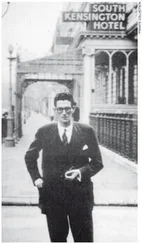The British force simultaneously expanded and shrank. At the end of October, Kitchener would call for 300,000 volunteers, but these were smaller men. The soldiers of the original BEF had all been over the regulation height of five feet eight inches. Henceforth anyone over five feet three was deemed an acceptable warrior. The war of movement staggered into stasis and, for the people of Picardy, what had been an invasion, now became a vast, minutely organised and intimately repressive occupation, the methodical pillage of a strip of industrial and agricultural land containing about 2.5 million people.
The villagers listened and wondered, while ‘the cannons grumbled away to the west, and the occupation covered everything, like a cloak of lead’. The war seemed impossibly, terrifyingly near. Ernst Rosenhainer, the young German infantry officer who had recoiled from the cruelty of the initial invasion, was struck by the way the landscape suddenly changed from bucolic idyll to pitted wasteland, as he marched with his regiment to the trenches south-west of Villeret, between Péronne and Noyon. ‘We came through the lovely valley of the Oise River,’ he wrote. ‘At times through the most beautiful beech forests.’ But just a few miles further on ‘a veritable labyrinth of trenches is opening up before us … there is nothing but death and devastation, and now a solemn silence under the autumn sun’.
In the village of Aubencheul, a friendly French-speaking German army captain from Alsace paused to chat with the curé and told him: ‘A mighty blow is being prepared. If it succeeds, the war is over. If it fails, the struggle may continue for five years, perhaps seven, for the English are tenacious and their resources are immense. They are our real enemies, an infernal race. Oh, if only we could overcome them.’
Through the rest of October and for most of November, the remains of the BEF and units of the Indian Army battled it out with the Germans across a strip of Belgian Flanders: 75,000 died, before the First Battle of Ypres ground to an inconclusive halt by winter. Further south, the German occupiers settled in for a battle of attrition, and the region behind the front lines east of the River Somme, including the villages of Villeret, Hargicourt, Hargival, Vendhuile and Bellenglise now became a single administrative unit. Under the new German military government, the Etappe, or rear zone, was ruled by the Etappen-Kommandant headquartered in Le Câtelet, who in turn came under the command of an Etappen-Inspekteurat at the German military headquarters now established in Saint-Quentin. To the north and east, the German occupation was more fluid, allowing rural and industrial life to continue much as before, but here, immediately behind the front line, the German yoke was at its most oppressive. Every inhabitant, from well-to-do Jeanne Magniez in her mansion at Hargival to the Dessennes in their tiny home in Villeret, was now a part of the German war machine, to be kept in order, carefully controlled and gradually bled of any available resources and luxuries that might contribute to the effectiveness or enjoyment of the German forces.
As the soldiers burrowed down along both sides of the Western Front, so the Germans pervaded the lives and homes of the local inhabitants. Sandwiched between the front lines and the occupied areas behind, this strip of territory became a strange no-man’s land for those who remained there, deprived of all rights and information, pinned down by the crushing weight of the conflict. No aspect of daily life was left untouched, unregulated or unmolested; the troops came in on numberless waves, and so did the rules. Within a few months, Germany succeeded in transforming occupied France into what the future US president Herbert Hoover described as ‘a vast concentration camp’ in which survival was increasingly difficult, and escape nearly impossible.
Major Karl Evers – or Etappen-Kommandant 8/X of the 2nd Etappen-Inspektion, to give him his full title – had been a wholly undistinguished magistrate before the war in the town of Celle, near Hanover. The administration of this small but important area of occupied France was a job precisely suited to his limited imagination, casual cruelty and obsession with bureaucratic minutiae. His tasks were to ensure that the civilian population did not impede the German war effort, to flush out spies, to provide adequate billets in the scattered villages for the thousands of troops heading back and forth to the front, and to extract from the land and its people whatever could be of use, value or pleasure. A minor functionary who now found himself the seigneur of Le Câtelet and an area of about ten square miles around it, Evers plunged into the job with relish.
In Le Câtelet, the villagers watched with foreboding as the German imperial flag was raised above the police station, now the headquarters of the military police, ‘telling everyone that there were, henceforth, no rights and no liberties’. A command post was officially established on 19 October, ‘when soldiers requisitioned furniture to set up their offices’. Here Evers called together all the mayors of the region, including Parfait Marié of Villeret, and ‘delivered a lecture in a language that was almost French, describing the various duties that were now incumbent on them, on pain of death. He played the tyrant. Every morning officials of each commune were required to come, whatever the distance, to the dictator’s office to … be told of his decisions, receive instructions and particularly orders for requisitions, with the required quantities, of horses, livestock, carts, wine, food, bed linen, money and so on.’
Конец ознакомительного фрагмента.
Текст предоставлен ООО «ЛитРес».
Прочитайте эту книгу целиком, купив полную легальную версию на ЛитРес.
Безопасно оплатить книгу можно банковской картой Visa, MasterCard, Maestro, со счета мобильного телефона, с платежного терминала, в салоне МТС или Связной, через PayPal, WebMoney, Яндекс.Деньги, QIWI Кошелек, бонусными картами или другим удобным Вам способом.












